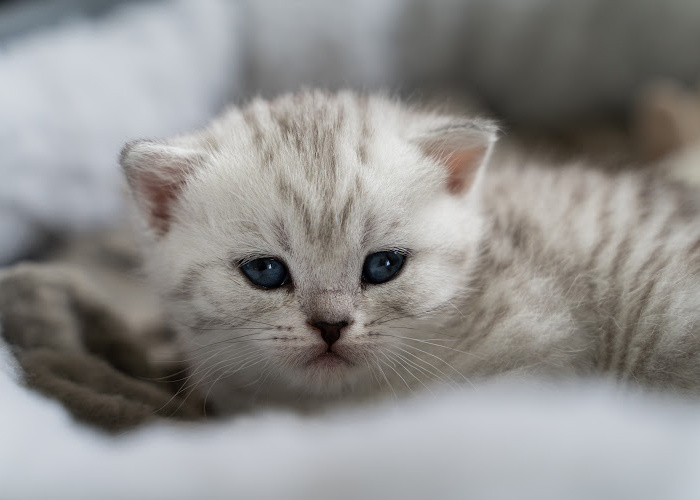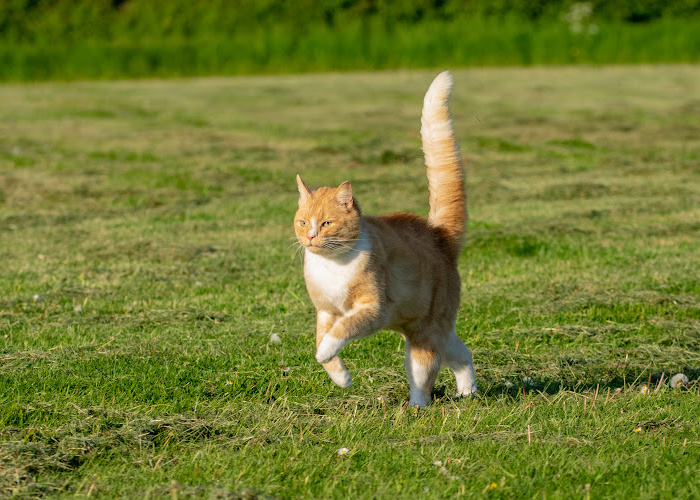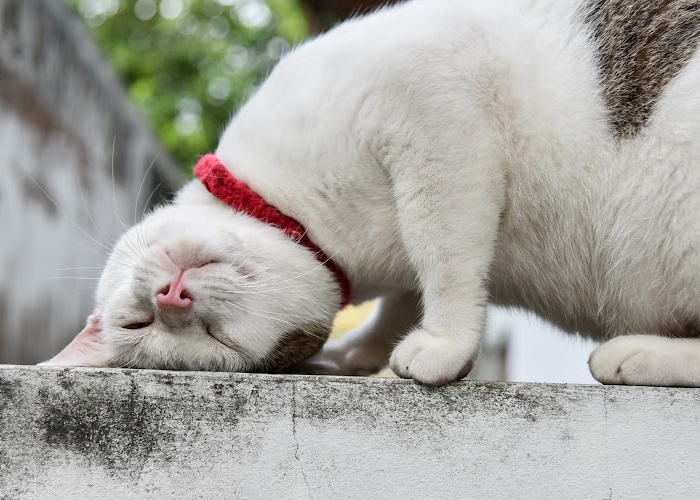It's crucial to know that students with autism and ADHD need special study strategies. Autism…

Can Cats Be Born Autistic? Feline Behavior Explained
The topic of autism in cats, drawing parallels to Autism Spectrum Disorder (ASD) in humans, raises questions about similar neurodevelopmental disorders in felines. Studies delving into animal neurodiversity have highlighted behaviors in cats that reflect autistic traits in humans, such as hypersensitivity to stimuli, repetitive actions, and social interaction difficulties.
Yet, the consensus in the scientific community remains that cats cannot have autism like humans. Instead, researchers and veterinarians recognize that certain behaviors, often grouped under the term ‘special-needs’, may result from other conditions or environmental stressors.
Recognizing and addressing such behaviors through appropriate veterinary consultation and environmental adjustments can support the well-being of cats exhibiting these traits.

Understanding Feline Neurodevelopmental Disorders
Neurodevelopmental disorders in cats, although not classified as autism, highlight the need for understanding neurodiversity within the animal kingdom. Cat behaviors, such as heightened sense of alertness, avoidance of contact, and repetitive actions, could be remnants of their evolutionary history as solitary hunters.
While these actions may suggest a spectrum of neurodiverse behaviors and could mirror certain autistic traits in humans, they do not confirm a diagnosis of autism in cats. This neurological scope includes a wide range of behaviors that are part of a cat’s nature.
Scientific investigations continue to analyze shelter cats and other felines to improve our comprehension of such neurodiversity, aiming to foster better care for cats that show divergent behavioral patterns.
Exploring the Spectrum: Defining Autism in Humans and Cats
While humans can be diagnosed with Autism Spectrum Disorder, it is important to note that cats cannot be directly compared to human subjects in terms of neurodevelopmental disorders. Cat neurodiversity is a key factor that contributes to the variety of behaviors in individual cats, and although some behaviors could be reminiscent of autism in humans, these are the result of unique feline traits or other underlying conditions.
Neurodiversity in Cats: Celebrating Behavioral Differences
Feline developmental disorders can manifest in a range of behaviors, all of which fall under the umbrella of what makes each cat unique. By accepting and embracing these differences, pet owners can better appreciate their feline companions for who they are, supporting their well-being and fostering a strong bond.
| Behavior | Connection to Feline Neurodiversity |
|---|---|
| Heightened sense of alertness | Evolutionary trait as solitary hunters, but could also result from anxiety or other stressors |
| Avoidance of contact | Remnant of territorial behavior in wild cats, or a response to a negative experience |
| Repetitive actions | Possible result of stress or boredom, but can also indicate underlying medical conditions |
As we continue to learn more about feline neurodiversity, enhancing our understanding of these unique behaviors is pivotal to providing the best possible care for our beloved cats. This deeper knowledge will empower pet owners to better support their feline companions, allowing them to flourish and thrive in their environment.

Can Cats Be Born Autistic?
The question of whether cats can be born autistic remains answered with a resolute ‘no’ from the scientific community, based on the current evidence. Cats can display autism-like behaviors such as excessive vocalization, sensitivity to changes in the environment, and repetitive motions or self-stimulation.
These signs often stem from other underlying conditions or stress responses rather than a distinct neurodevelopmental disorder that parallels human autism.
Treatment for cats exhibiting these feline autism signs may include environmental enrichment, pheromone therapy, or medications as prescribed by a veterinarian. The following table features some common signs of autism in cats and their potential causes:
| Autism-like Behavior | Potential Cause |
|---|---|
| Excessive Vocalization | Stress, Anxiety |
| Sensitivity to Changes in Environment | Feline Cognitive Dysfunction, Anxiety |
| Repetitive Motions or Self-Stimulation | Obsessive-Compulsive Disorders, Boredom |
With proper care and understanding of their unique needs, cats displaying atypical behaviors can lead joyful, fulfilling lives. It is essential to recognize that not all cat behavior disorders are indicative of feline cognitive dysfunction and should be treated accordingly after thorough examination by a veterinarian.

Recognizing Signs of Atypical Behavior in Felines
Identifying signs of atypical behavior in felines plays an essential role in ensuring their care and well-being. While cats may exhibit certain autism-like symptoms, it is important to note that these behaviors are not indicative of autism, as the diagnosis criteria are tailored to human beings. Understanding the nuances between normal feline behavior and autism-like symptoms can help provide appropriate care for our beloved cats.
Behavioral Similarities to Autism Spectrum Disorder
Some behaviors often associated with autism in humans can also be seen in cats, such as avoiding eye contact, not wanting to be touched, and engaging in repetitive actions. However, it is crucial to recognize that these behaviors do not confirm a diagnosis of autism in felines. Many of these actions can be attributed to natural instincts or environmental stressors rather than a specific cat behavior disorder.
Addressing the Misconceptions: Typical Cat Behaviors vs Autism-like Symptoms
Many cat behaviors that are misinterpreted as autism-like symptoms are, in fact, within the range of normal behavior for felines. Cats may have preferences for routine, desire alone time, or express startle responses to loud noises. Distinguishing between typical feline actions and potential signs of feline cognitive dysfunction can help owners provide appropriate care and support for their pets.
Evaluating Your Cat’s Behavior: When to Seek Veterinary Insight
If a cat displays unusual or exaggerated behaviors, consulting with a veterinarian is essential to rule out underlying medical conditions or environmental stress factors. While specialized treatments or behavior modification strategies may be beneficial for some cats, others may simply possess unique personalities that do not conform to the average feline behavior profile.
In either case, seeking the advice of a knowledgeable veterinarian can promote a healthy and fulfilling life for your cat.

FAQ
Can cats be born autistic?
The scientific community currently maintains that cats cannot be born autistic, as the diagnosis criteria for autism are tailored for humans. However, cats can display autism-like behaviors due to other conditions or environmental factors.
What are some signs of autism-like behavior in cats?
Signs of autism-like behavior in cats can include excessive vocalization, sensitivity to environmental changes, repetitive actions, not wanting to be touched, and avoiding eye contact.
Are there neurodevelopmental disorders in cats similar to Autism Spectrum Disorder in humans?
While some behaviors in cats might resemble traits of human autism, currently, there is no distinct neurodevelopmental disorder in cats that parallels Autism Spectrum Disorder in humans.
How can I address my cat’s atypical behavior?
If your cat displays unusual or exaggerated behaviors, consult a veterinarian to rule out any underlying medical conditions or environmental stress factors. Treatment options may include environmental enrichment, pheromone therapy, or medications prescribed by a veterinarian.
What’s the difference between typical cat behavior and autism-like symptoms?
Typical cat behavior includes preferences for routine, alone time, and startle responses to loud noises. Autism-like symptoms may appear similar, but if a cat’s behaviors are more exaggerated or outside the normal range, it is essential to seek veterinary advice to address any possible underlying issues or stressors.



This Post Has 0 Comments